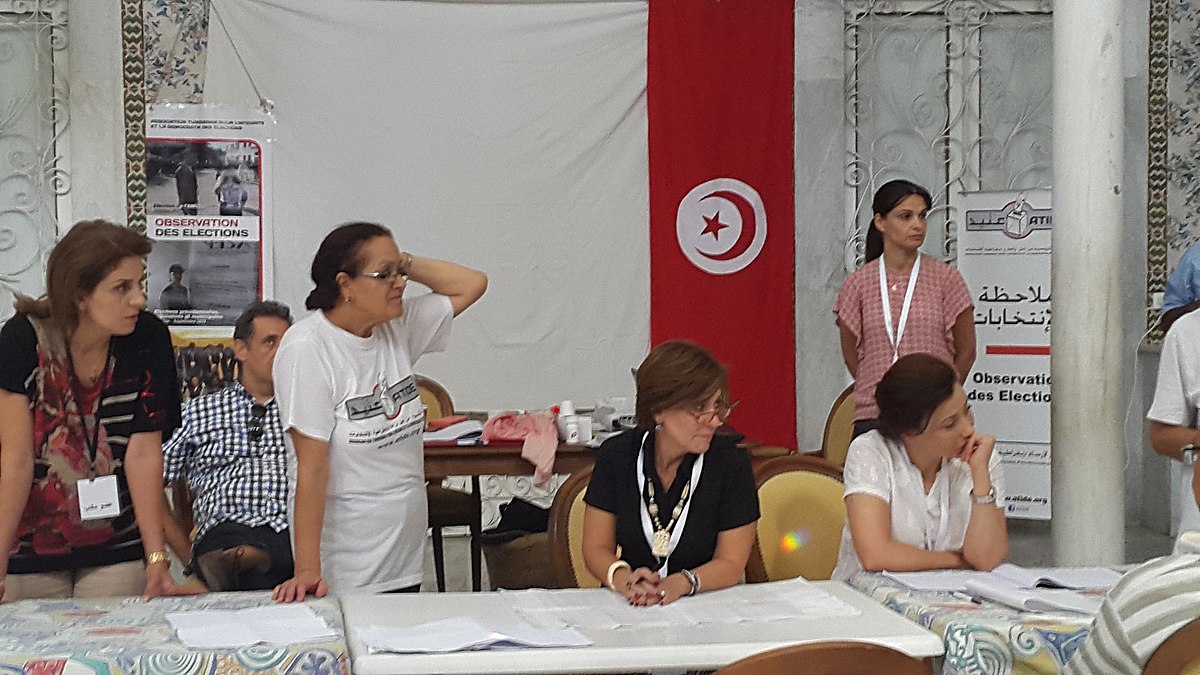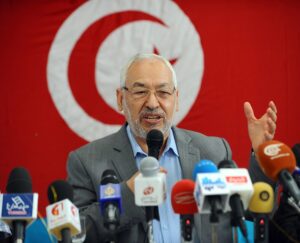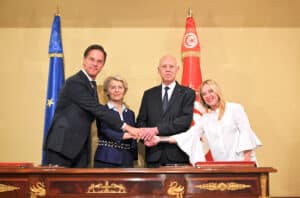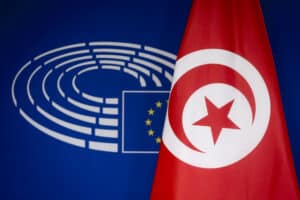This Saturday, 17 December, parliamentary elections were held in Tunisia. The elections followed months of political crisis after President Kais Saied suspended parliament on July 25, 2021. The parliamentary elections on Saturday were boycotted by most of the opposition. Voter turnout was extremely low, around 8.8%.
The elections were announced by President Saied in December 2021, after he had implemented emergency measures and suspended parliament earlier that year. Since, Saied has solidified his one-man-rule, by officially dissolving parliament, seizing control of the electoral commission, and enshrining his powers through a constitutional referendum.
“Not neutral”
In September, Saied announced changes to the electoral law that reduced the importance of parties in parliament. In the elections on Saturday, voters voted for individual candidates, instead of voting for a party. In addition, Saied diminished the powers of parliament and expanded his own powers in the constitutional referendum last July.
The National Salvation Front, a faction of Tunisia’s main opposition parties, had called for boycotting the elections. The Front accuses Saied of carrying out a coup. According to Ahmed Nejib Chebbi, the head of the alliance, the elections on Saturday were held under the supervision of a body that is “not neutral and loyal to the ruling authority.”
“Defend rights and freedoms whatever the cost”
Tunisia’s powerful labour union, the Tunisian General Labour Union (UGTT) has also explicitly rejected Saied’s democratic backsliding. In a recent speech, Noureddine Taboubi, leader of the UGTT, said: “We no longer accept the current path because of its ambiguity and individual rule, and the unpleasant surprises it hides for the fate of the country and democracy.” The leader of the UGTT added that “we will not hesitate to defend rights and freedoms whatever the cost.”
No legitimacy
After the exceptionally low voter turnout was made public, the National Salvation Front called for Saied to step down, since had lost all legitimacy. However, the low turnout cannot only be ascribed to the National Salvation Front’s call for boycotting. It is also a result of the widespread political disillusionment among the Tunisian population.
In most districts, candidates have not secured an electoral victory yet. Therefore, runoffs will be held on January 20, the electoral commission has announced. In the elections, 1.058 candidates were running for 161 seats.
Support Saied
Saied, a former professor of constitutional law, won the presidential elections of 2019 as an independent candidate, presenting himself as an outsider from the Tunisian political establishment. His victory primarily relied on votes from young Tunisians, who were disillusioned with politics and suffered from high unemployment rates.
Initially, Saied’s decision to suspend parliament received widespread support from the Tunisian population, with polls measuring around 87% approval rates for Saied’s actions. However, as time went by, critics accused the Tunisian President of democratic backsliding and carrying out a coup.
Financial crisis
In addition to the political turmoil, Tunisia is struggling with a severe financial crisis, deepened by supply shortages in the wake of the Russian invasion of Ukraine. In September, demonstrators took to the streets to call for solutions to the general lack of sugar, cooking oil, milk, and rice, the rising energy prices, and a high inflation rate of 9%. Angered crowds chanted: “jobs, freedom, and national dignity,” “we can’t support crazy price hikes,”, and “where is the sugar?”. Images on social media show supermarkets’ empty shelves and customers fighting for a pack of sugar. The country is currently negotiating a bailout loan from the International Monetary Fund of about 2 billion dollars.
“The only Arab democracy”
Saied’s power grab came as a surprise to many. After the Arab Spring of 2010/2011, in which protesters around the Arab World had taken to the streets to demand social justice and political freedom, Tunisia was the only country to establish a successful democratic system. Western observers and policymakers hailed Tunisia as a success story, dubbing it “the only Arab democracy”. But they overlooked the growing political disillusionment among many Tunisians, who had become increasingly disenchanted with the country’s widespread corruption and worsening economic conditions.
In the coming weeks, more protests are expected, especially in the lead-up to January 14, the day former dictator Ben Ali was ousted twelve years ago. Civil society will likely participate in the protests, but also regular Tunisians, that are suffering from the worsening economic crisis.
Sources
Aljazeera1, Aljazeera2, Aljazeera3, Aljazeera4
Image



